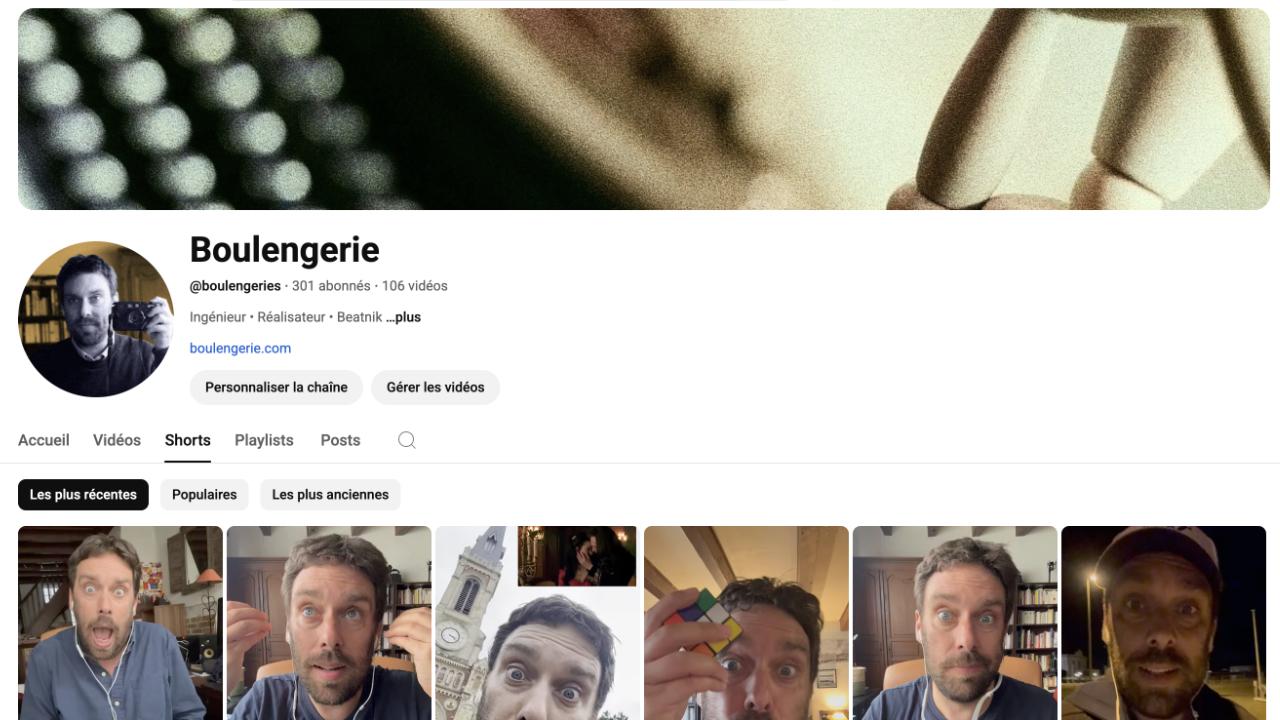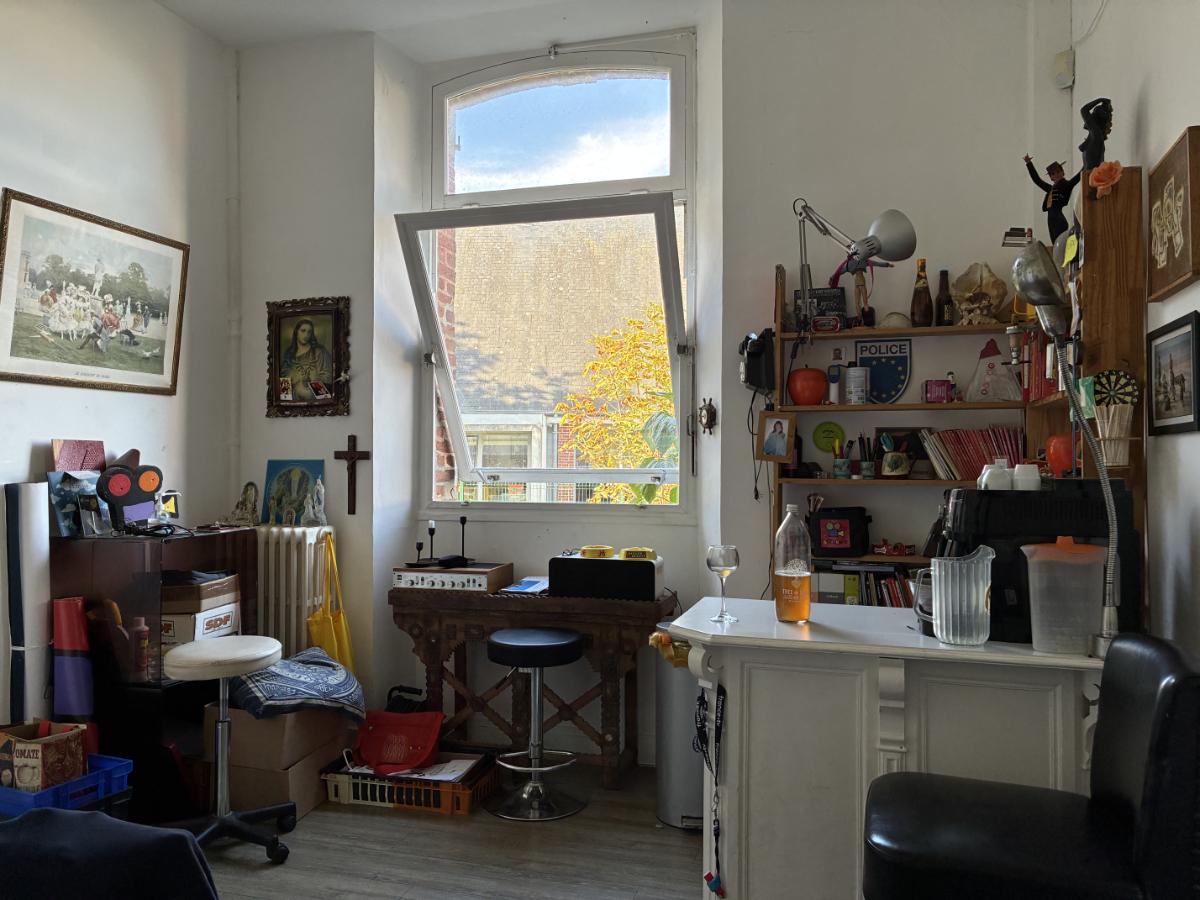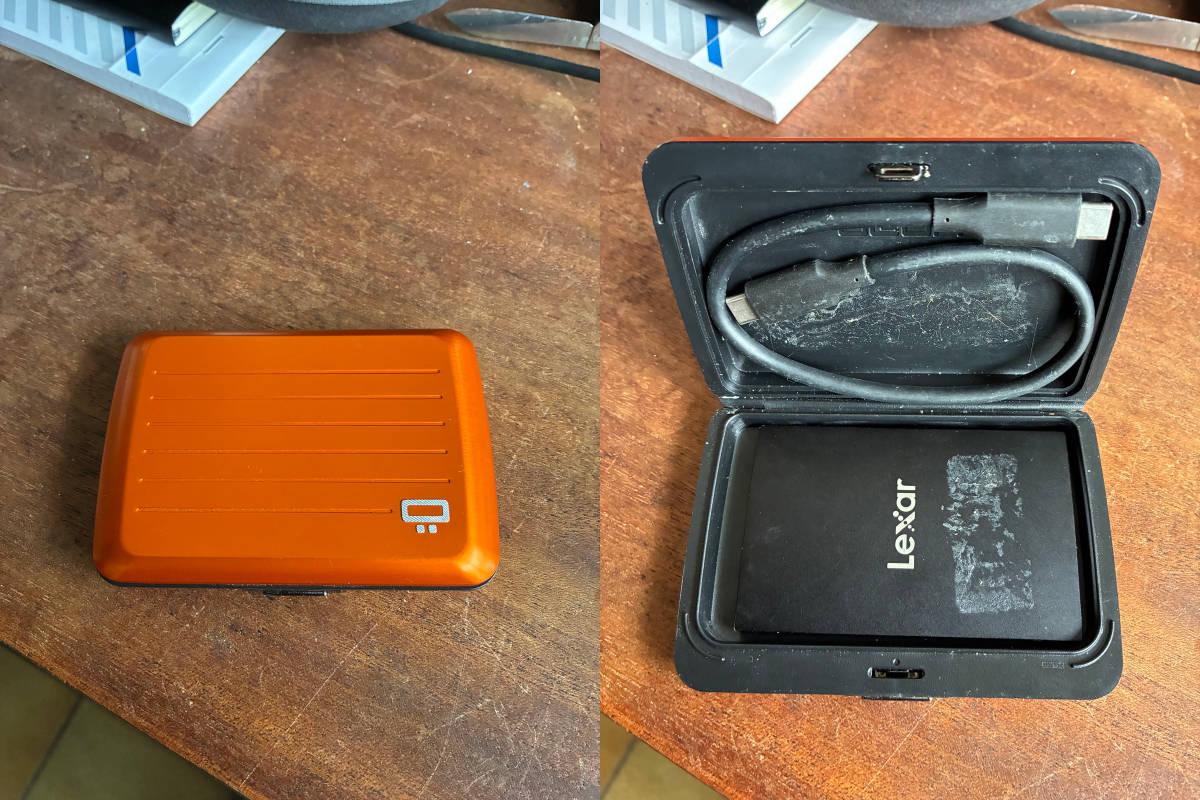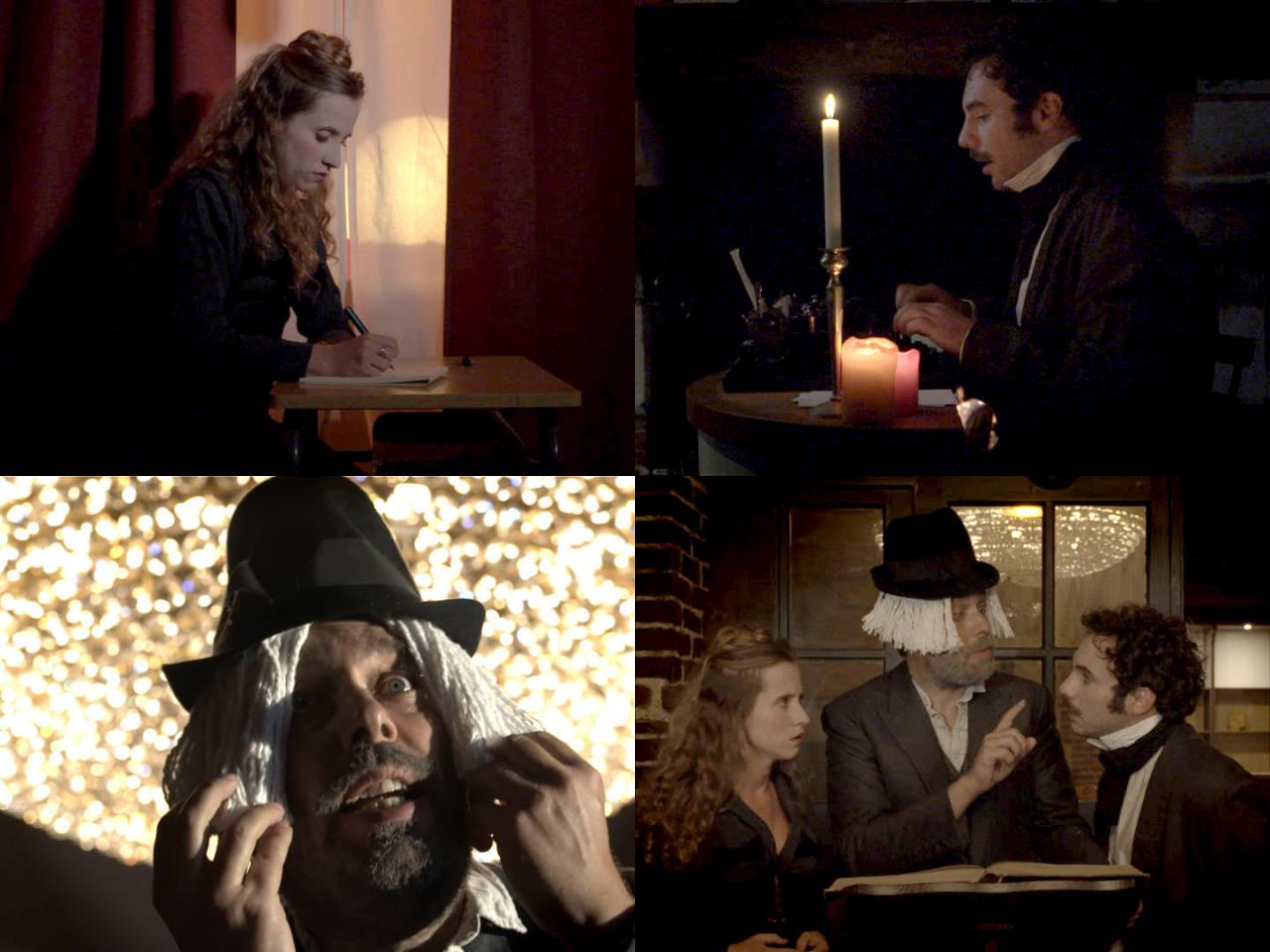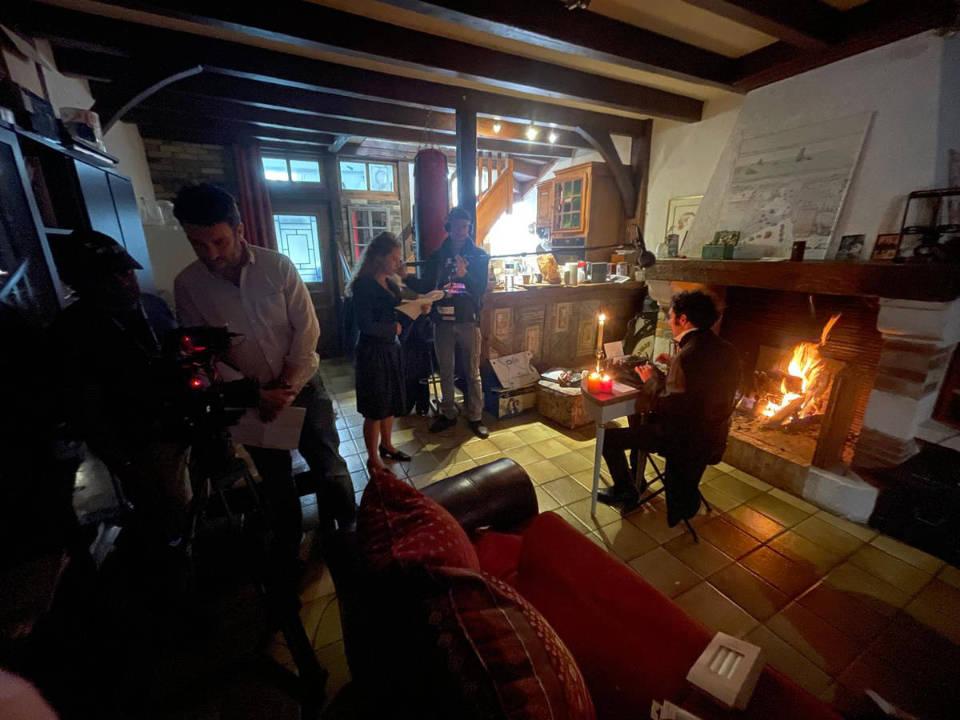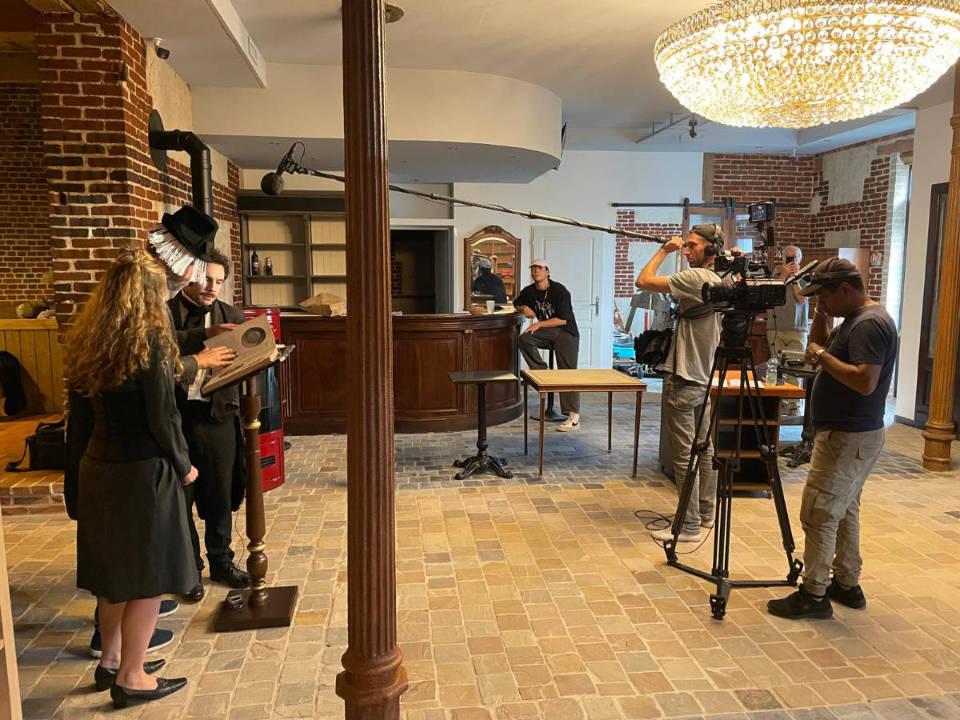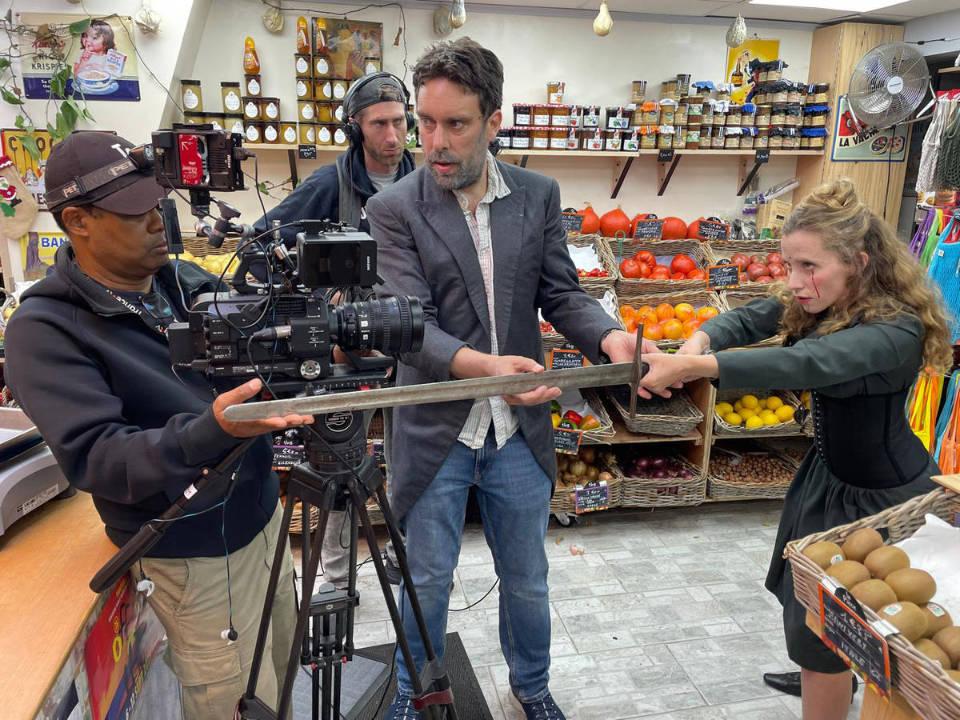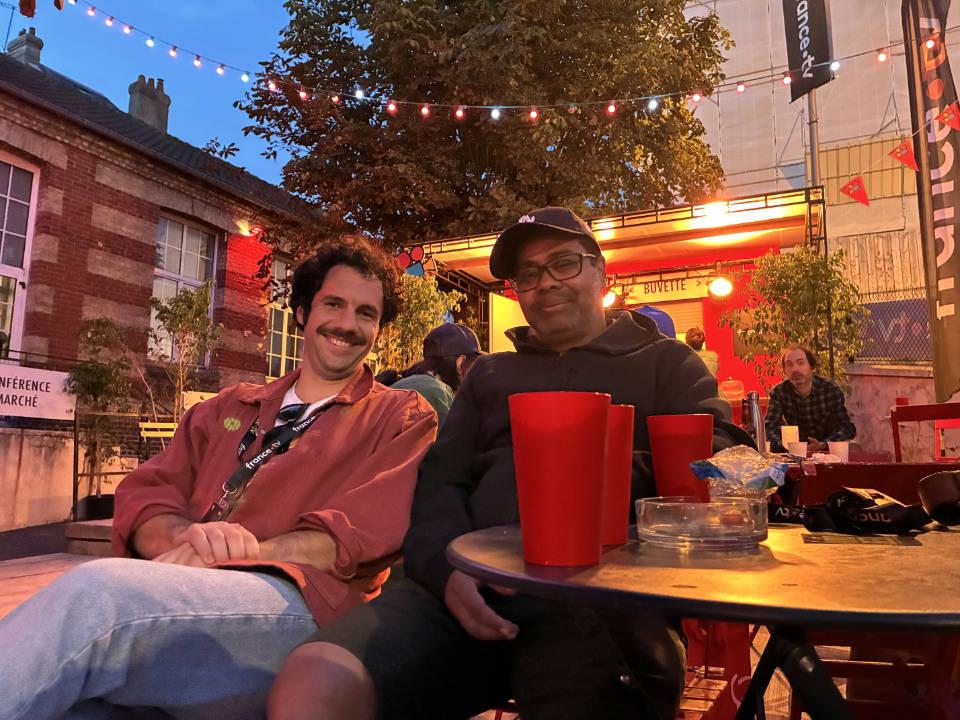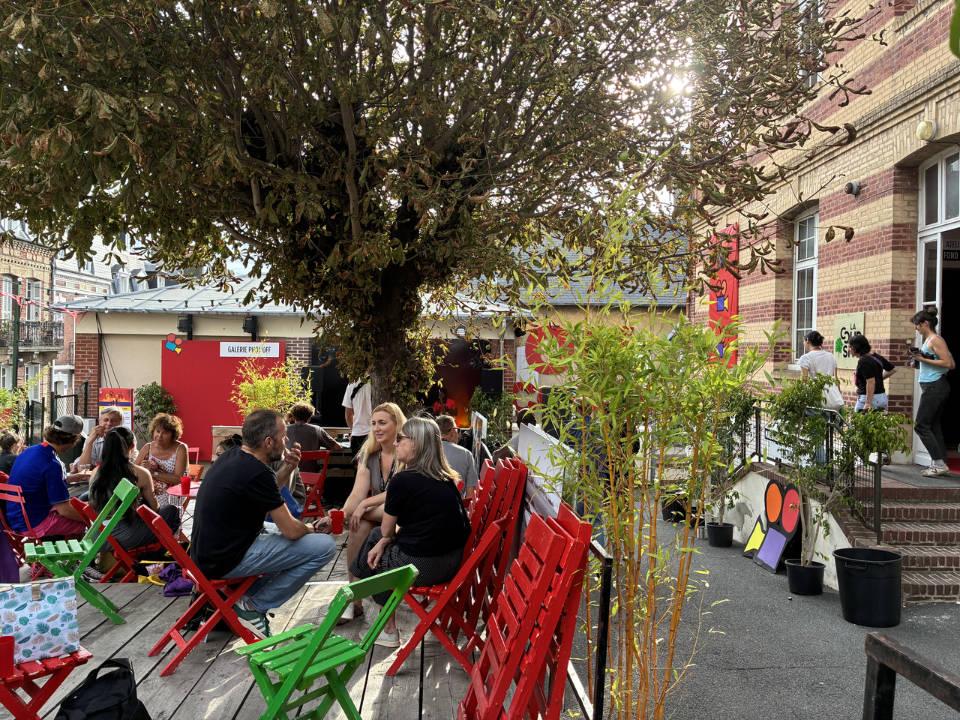One note per day 👇
300
This is my 50th video since I started posting every day again and I've now reached 300 YouTube subscribers.
On Instagram and TikTok, we're closer to 3000 followers but YouTube is harder.
To navigate this complexity, my editorial strategy rests on three essential foundations:
- blah
- blah
- blah
A strategy I could sum up with this ancient quote that guides me every day:
"Sometimes it works, sometimes it doesn't." – Buddha (maybe)
All this to say I'm not trying to understand. I post and we'll see what happens.
That said, I'd be lying if I said I haven't started spotting certain aspects that influence a video's success. But I don't let these ideas overshadow my goal:
Telling whatever I feel like, whenever I feel like it, without hiding.
--
Related:
Taking Notes to Move Forward
I've been taking notes my whole life and it's done me practically no good. Until recently, because I changed my system.
First, let me clarify: I've been using Obsidian for 3 or 4 years (after Apple Notes, Airtable, Notion...) and even though I love this software – I'll talk more about it later – it's not a tool issue. It's a process issue.
Before, I was hoarding notes.
Like an obsessive person suffering from Diogenes syndrome: I was afraid of losing an idea, of letting the providential thought slip through my fingers. So I accumulated, and accumulated. And once in my vault, I did nothing with them.
Over time, I found technical solutions to use my notes more – mainly by putting them in front of my eyes – but that wasn't enough.
What was missing? Pressure.
The most important thing isn't writing a note: it's the work you do afterward to integrate it into a body of knowledge that you use every day. Applying pressure to a set of ideas so they aggregate and form a diamond.
So now, I proceed like this:
- I write a note in a catch-all file (Inbox)
- I then copy it into the relevant file (e.g.: productivity, presence, creation)
- In this file, I group connected notes into large sections with subtitles and summaries.
- I create (or maintain) at the top of this file a global summary in two or three sentences that captures the essence of what's important, often in the form of clear and concrete advice.
- I rinse and repeat.
The final objective is therefore to produce this targeted advice that is immediately applicable and that I organize myself to reread regularly. Having compiled it from multiple sources makes it very personal and concrete.
That was one of this morning's activity.
--
Related:
- Marketing BY Dummies (example note)
- Obsidian (website)
The Battle to Exist
I've noticed that the times I got angriest were when someone acted as if I didn't exist.
As if where I stood, there was no one.
The driver who nearly runs me over. The fellow passenger who plays their music as if they were alone. The colleague who completely disregards what I say.
I've noticed it in others too. The strongest emotions arise when we feel ignored.
So much so that much of what we do seems designed to prove that we exist.
Work, conversation, creation, networking... Everything seems subconsciously calibrated to give the world proof that we're really here.
As if our essential fear was being a ghost. The existential dread of being nothing but a specter that needs to thrash about to be seen.
And when someone ignores us, it's as if they were highlighting this emptiness. As if, with a gesture or a remark, they were reducing to nothing all the efforts we make to exist everyday.
Related:
Migrul - Comedy short film
Dracula, but worse. A comedy short film written and shot in 72 hours during the 2025 Off Courts Festival.
With Marianne Fisch (as Mina), Léo Grange (as Jonathan), Nicolas Boulenger (as Prof. Vénèresling), Ahmed (as the Grocer). Cinematography Jean Ratsimbazafy, Sound Vincent Robidou, Music Edouard Pons, Assistant Director Mathis Recondu, Camera Assistant Huseyin Asscam, Makeup Omaya Salman and Anna Martin, Costumes Soazig Henri-Le Cann, Fight Choreography Alexandre Thomas. Thanks to Librairie La Distillerie, Chez Ahmed, the Kino / Off Courts team and Sony France. A film by Nicolas Boulenger.
--
Related:
Small victories
A year ago, I bought an SSD hard drive to show my movies anywhere. But it didn't come with a sturdy case. So I bought this card holder (which cost an arm and a leg) at the stationery store.
I couldn't check the size because it was filled with plastic sheets that I tore out.
When I discovered that not only was it the perfect size, but the cable fit just right inside to stabilize the whole thing... small victory.
It goes everywhere with me now.
(No, that's not dirt inside, it's dried glue residue.)
Zen & Creation
I think the festival went so well, both in terms of the connections I made and my film, because I was fully present.
I decided I would continue meditating every morning, regardless of my schedule. I stuck to it.
I even meditated at noon the day before filming, when I was stuck on preparation. Result: solutions fell from the sky.
I came without an idea, without a script, without a crew.
When something was resistant, I let go.
When I was hurt by a rejection or an event, I noticed this emotion and did my best not to act reactively.
I was listening to everyone, all the time. Without forcing myself. I was happy to be there.
Every aspect of my film – ideas, locations, crew – came naturally, through chance encounters.
Neither the filming nor the editing were easy. Yet I can't imagine how it could have gone better.
The difficulties and stress were part of the ideal path.
--
Related:
"Migrul" Screening and Festival Wrap-Up
My film "Migrul" written, shot and edited in 72h was screened last night for the closing of the Off Courts Festival.
It's a film I'm really proud of – both the process and the result – and it was extremely well received at the screening. I've had lots of people bringing it up over the past 24 hours.
Also very happy about this week where I met and reconnected with more people than in previous editions.
I'll post the film soon. In the meantime, here are some photos from the shoot taken by Huseyin (thanks!!) :
All of this in ONE day and this is only part of the locations... Results in upcoming posts!
Film completed! So happy.
I didn't post yesterday because we were right in the middle of shooting – I've never been busier in my life !
Today (well, tonight), I'm taking a break. The film will be posted here very soon because for once, I finished it COMPLETELY. No touch-ups needed.
Off Courts day 3 - things are taking shape
My film idea for the Kino is taking shape. I've found the story, the crew, a few locations.
I'm finishing the script tonight, I need to make the shot list, and find one or two more people to assist me.
The pitch? It's a racist horror film.
There you have it.
Off Courts Festival - Day 2
Yesterday was magical. The joy of seeing friends again, chatting in the cafeteria, at the concert, at the bar. It had been so long since I'd had conversations that were so joyful, deep and intimate.
My film idea is taking shape: it will be a horror film in 4:3, somewhat in the style of Méliès.
To be continued.
Zero Film Ideas
I'm going to make a kino (72-hour film) on Tuesday at the Off Courts Film Festival and I have no idea what I'm going to do.
This isn't bad news—quite the opposite.
When I show up empty-handed, with nothing but my wits, it means I'm confident.
Confident in the process. Confident that by meeting people, feeling the vibe, seeing the locations, something will come. Or not—that's fine.
Right now, I'm listening to sounds on Ableton. Maybe I'll start with the music first.
We'll see.
3 Nicolas in 1
I feel like there are 3 "public" Nicolas :
- the Nicolas who makes funny videos
- the Nicolas who makes zen videos
- the Nicolas who sells stuff
And my goal is to combine all three. I'm working hard on it.
If I make a video a day, it's partly for that reason. Learning to find my voice, express myself freely, no longer letting myself be intimidated by stupid obstacles.
I want to be able to express fully, easily and freely what's deep inside me. Not that I'm more interesting than others, not at all.
This is what I've realized: we all hide something brilliant. Something that could attract, fascinate. But very few know how to express it due to lack of practice and fear of exposure.
So I've decided to work on that.
--
Related links:
Death, death, death!
If we worried less, it would be the great liberator.
I'm not talking about suicide. I'm talking about perception of life.
A large part of the anxiety we accumulate comes from our tendency to take everything seriously. As if every action were important and momentous.
Except that everything ends on equal footing.
The billionaire like the homeless person, the beautiful and the ugly, the pleasure-seeker and the worrier, all end up the same way and you only need to wait a few decades for no one to remember them anymore. At best (or at worst), what remains are stories that have little to do with who they actually were.
Everything is less important than expected.
Nothing is as serious as we think.
The point was never to last.
Be free.
Dogs on the Beach
When I walk on the beach holding something in my hand, there's always a crazy (but happy) dog who runs toward me and asks me with his eyes:
Hey, what's that?
Is it a ball?
Is it a treat?
Is it a rock?
Is it for me?
Never mind gotta go bye!
And off he goes. 🤷♂️
New Professional Website
I just finished redesigning the ChezFilms website.
Basically, I'm focusing on what has worked in the past: helping experts communicate better by working on strategy, expression, and producing (or helping them produce) their content.
What's new: our services for individuals.
If you know someone who might be interested :)
Done with the BS
LinkedIn Post (and new manifesto for the future):
My LinkedIn policy for 2025 (and beyond): I'm dropping corporate speak.
I can't remember a single time in my life when it served me. Not one memory of someone who used it that made me want to follow them on any adventure.
It's the language used by those who feel obligated to communicate but don't want to rock the boat.
It's the language we encourage in companies when we build profitability on teams that we deny the tools to create genuine connection.
It's the lukewarm water of the last century.
Done!
I don't intend to be rude or hurtful, but I can't stand the blah blah blah anymore.
And I'm going to stop with the systematic emojis too. Once in a while, sure, to capture a smile on my face, but when it becomes a style "to grab attention," honestly, I can't take it anymore. I don't even read anymore.
And if you use an LLM to format your posts and add the right icons and "the positive tone desirable on a professional network," I think you're collectively hurting us and I'm going to stop following you.
My mistake was trying to network with people who don't interest me. Telling myself "I'll keep them just in case." No no no no no. "Hell yeah, or nothing." Or, as Jung said: "For the best to happen, the good must be set aside."
This is also a good time to stop following me. The worst is yet to come 🙂.
Happy back-to-school season.
--
Related:
Seeing the System
Tabloid newspapers wouldn't exist if nobody bought them.
Fanatical TV hosts wouldn't stay on the air if they didn't represent anyone.
Corrupt politicians wouldn't rise to power if their rhetoric didn't resonate with a large portion of the population.
Getting angry at the figurehead means forgetting about the entire ship floating behind it – which didn't build itself by magic overnight.
Yes: it feels good to get angry, sometimes. And it's convenient to be able to focus your rage on the visible, obvious part of the problem. But by overlooking the underlying system, we only have a very partial understanding of the situation.
And we indirectly become part of the problem.
Typing Faster
I now type relatively fast, around 70-80 words per minute, with good accuracy.
For someone who spends their time writing, it's quite handy: I can almost "dump my thoughts" onto the screen without looking at my fingers or falling behind.
The best site I've found for practice: keybr.com. It introduces letters one by one and allows you to practice with punctuation, capitals, etc.
My advice:
- Set it to French with capitals and punctuation.
- Don't try to go fast. The goal is accuracy. Stay above 95% accuracy with the right fingers.
- Don't look at your fingers. When in doubt, slow down.
- Ten to fifteen minutes a day.
- For variety, you also have 10fastfingers and Monkeytype.
It's quite a zen activity that clears the mind when you need to step back (from a text, from work...). I recommend it.
--
Related:
- Why Go Fast (archive)
Pagination
- Previous page
- Page 5
- Next page
